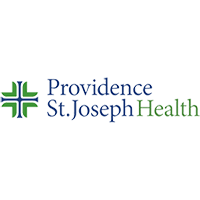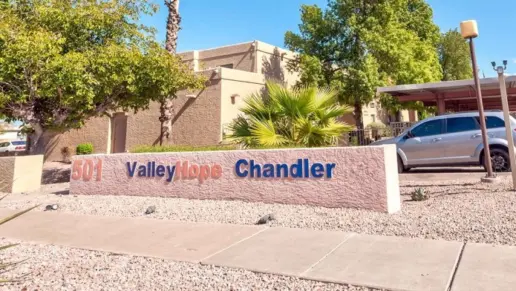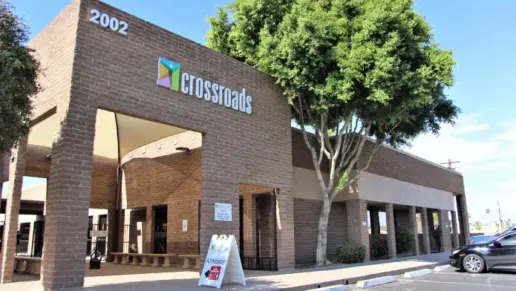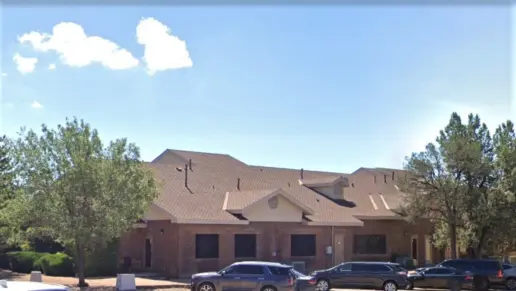About Royal Life Centers at Bridges
Royal Life Centers at Bridges is an alcohol and drug rehab for adults in Prescott, Arizona. They provide medical detox, inpatient treatment, and aftercare programs, including gender-specific programs. Specialized services for young adults, seniors, Native Americans, and military Veterans are also available.
Royal Life Centers at Bridges offers a range of inpatient services. Based on the results of a clinical assessment, clients may begin treatment with a 4-7 day detox, followed by a 2-week to 30-day residential treatment program. The residential program includes meals and group and individualized therapy. Counseling is based on cognitive behavioral therapy (CBT) approaches. Clients also engage in adventure therapy that includes exercise, hiking, and kayaking; yoga; equine therapy through horse grooming and riding; and other holistic therapies. Recovery-focused life-skills development is also emphasized. The Native American track provides exposure to indigenous healing practices and traditions, while the Veteran track includes trauma therapy and PTSD case management.
Their aftercare programs enable a complete continuum of care and may include vocational training, employment and housing assistance, transitional support for clients relocating to their sober living programs in Washington state, and referrals for additional services.
Royal Life Centers is accredited by the Joint Commission and the National Association of Addiction Treatment Providers (NAATP). It is also licensed by the Arizona Department of Health Services and certified by Wellbriety and LegitScript.
Royal Life Centers accepts most major private insurers, including Aetna, Blue Cross Blue Shield, Cigna, Humana, Shasta, TriWest, and UMR. Please check with your insurance provider for specific details concerning out-of-network coverage.
Rehab Score
Gallery
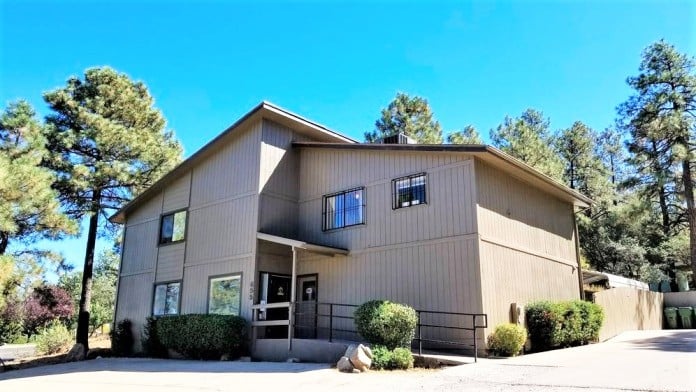
Location
Accepted Insurance
Other Forms of Payment
Private insurance refers to any kind of healthcare coverage that isn't from the state or federal government. This includes individual and family plans offered by an employer or purchased from the Insurance Marketplace. Every plan will have different requirements and out of pocket costs so be sure to get the full details before you start treatment.
Self-pay involves paying for treatment out of your own pocket. You can use savings or credit, get a personal loan, or receive help from family and friends to fund your treatment. If you don't have insurance or your insurance plan doesn't cover a specific program, self-pay can help ensure you still get the care you need.
Addiction Treatments
Levels of Care
Treatments
A combined mental health and substance abuse rehab has the staff and resources available to handle individuals with both mental health and substance abuse issues. It can be challenging to determine where a specific symptom stems from (a mental health issue or an issue related to substance abuse), so mental health and substance abuse professionals are helpful in detangling symptoms and keeping treatment on track.
Programs

Clinical Services
Equine therapy, aka equine-assisted therapy (EAT), is a form of experiential therapy that involves interactions and activities with horses. It does not necessarily involve riding horses, but all activities related to horses, such as feeding, grooming, haltering and leading them. A mental health professional frequently oversees the activities (often in conjunction with a horse professional), and helps patients process their thoughts, feelings, and behavior patterns during and/or after the interaction.
Experiential therapy is a form of therapy in which clients are encouraged to surface and work through subconscious issues by engaging in real-time experiences. Experiential therapy departs from traditional talk therapy by involving the body, and having clients engage in activities, movements, and physical and emotional expression. This can involve role-play or using props (which can include other people). Experiential therapy can help people process trauma, memories, and emotion quickly, deeply, and in a lasting fashion, leading to substantial and impactful healing.
Group therapy is any therapeutic work that happens in a group (not one-on-one). There are a number of different group therapy modalities, including support groups, experiential therapy, psycho-education, and more. Group therapy involves treatment as well as processing interaction between group members.
In individual therapy, a patient meets one-on-one with a trained psychologist or counselor. Therapy is a pivotal part of effective substance abuse treatment, as it often covers root causes of addiction, including challenges faced by the patient in their social, family, and work/school life.
Amenities
-
Hiking
Accreditations

The Commission on Accreditation of Rehabilitation Facilities (CARF) is a non-profit organization that specifically accredits rehab organizations. Founded in 1966, CARF's, mission is to help service providers like rehab facilities maintain high standards of care.
CARF Accreditation: Yes

The Joint Commission, formerly known as JCAHO, is a nonprofit organization that accredits rehab organizations and programs. Founded in 1951, the Joint Commision's mission is to improve the quality of patient care and demonstrating the quality of patient care.
Joint Commission Accreditation: Yes

LegitScript has reviewed Royal Life Centers at Bridges as part of their certification program, and has determined that it meets the LegitScript standards for legality, safety and transparency.
LegitScript verified in September 2019

The National Association of Addiction Treatment Providers (NAATP) is a professional association that represents organizations in the field of addiction services. Founded in 1978, NAATP's mission is to advance addiction services and ensure that high-quality addiction treatment is available and accessible.
NAATP Member: Yes
Contact Information
655 W. Gurley Street
Prescott, AZ 86305








